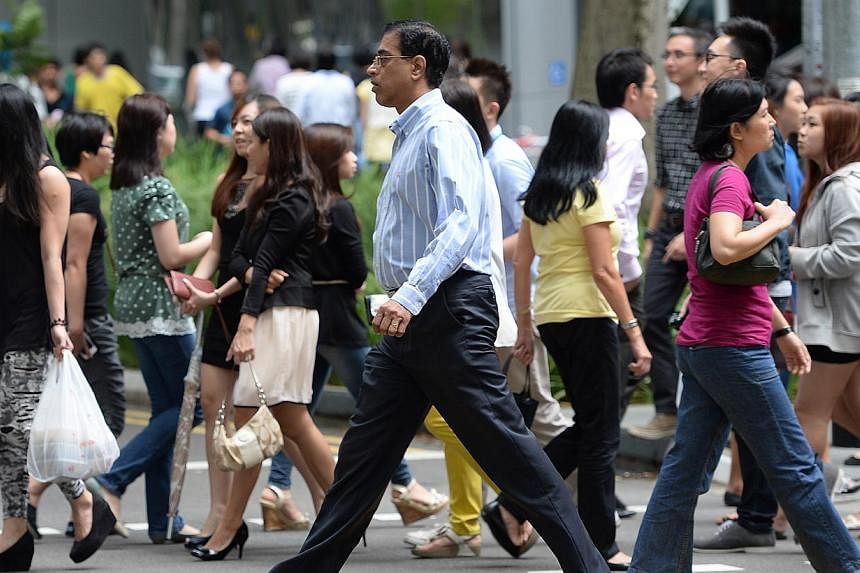The sense of security typically associated with being middle-class has given way to anxiety among such Singaporeans, as technology and globalisation widen income gaps and take away jobs, academics said at a forum yesterday.
"When we think about the middle class, we think of security, comfort and social mobility. But all these are sort of in decline," said National University of Singapore (NUS) sociologist Tan Ern Ser at the forum, which focused on the state of Singapore's middle class.
Exacerbating the anxiety is the rise in living costs, which has led to many middle-income Singaporeans - broadly defined as the middle 60 per cent of income earners here - no longer being able to afford what they think they deserve.
While the Government has stepped up social support measures, these are mainly targeted at the lower-income groups and the middle class may feel squeezed with nowhere to turn to for help, said Dr Tan.
The problems they face could have broader implications on society's stability and structure, said Dr Lionel Wee, the vice-dean of NUS' Faculty of Arts and Social Sciences.
In his opening address at the forum, organised by his faculty's Social Sciences and Policy Cluster and the Institute of Policy Studies' Social Lab, Dr Wee noted that the middle class has always been seen as an aspirational category for the poorer class.
"If the middle class itself is facing threats of long-term unemployment and socio-economic insecurity, then its value as an aspirational category becomes open to question," he said.
It could lead to the lower income becoming less inclined to work hard to move up to middle-class status.
The forum, with academics, a social worker and a journalist, covered issues such as how health-care policies affect middle-income earners and their attitudes on income inequality.
Singapore Management University economics professor Ho Kong Weng suggested that middle-class Singaporeans also feel less proud about their national identity, compared with the richer or poorer groups.
Drawing on data in the 2012 World Values Survey Singapore, Prof Ho said they felt a weaker sense of belonging to the country, and were less supportive of the Government's efforts to redistribute income.
The reason, he added, could be that the burden of income redistribution - through taxation and government welfare programmes - could be heavier on them, since they would not receive much aid.
Also, unlike the more mobile rich, they may not have the option to leave the country.


